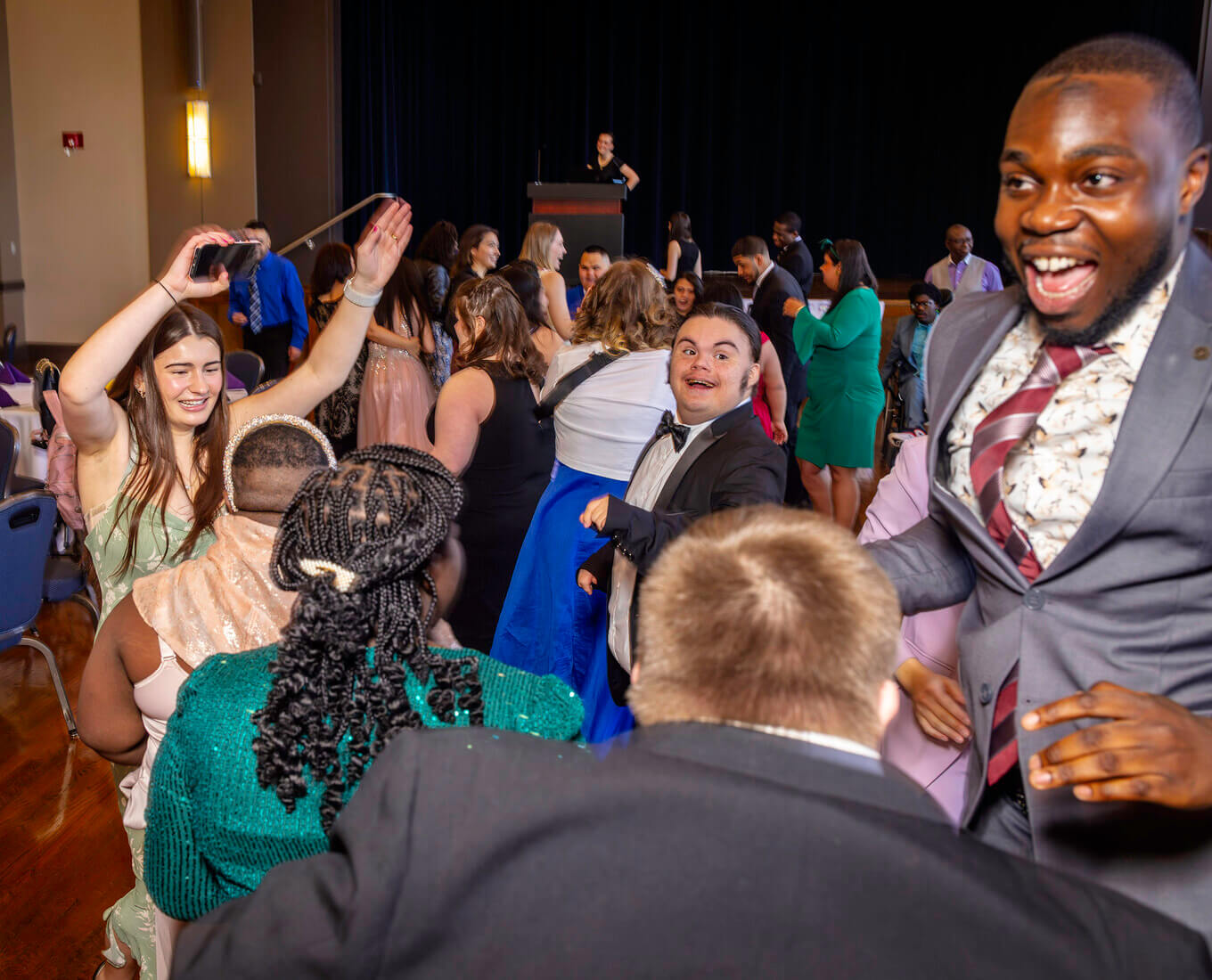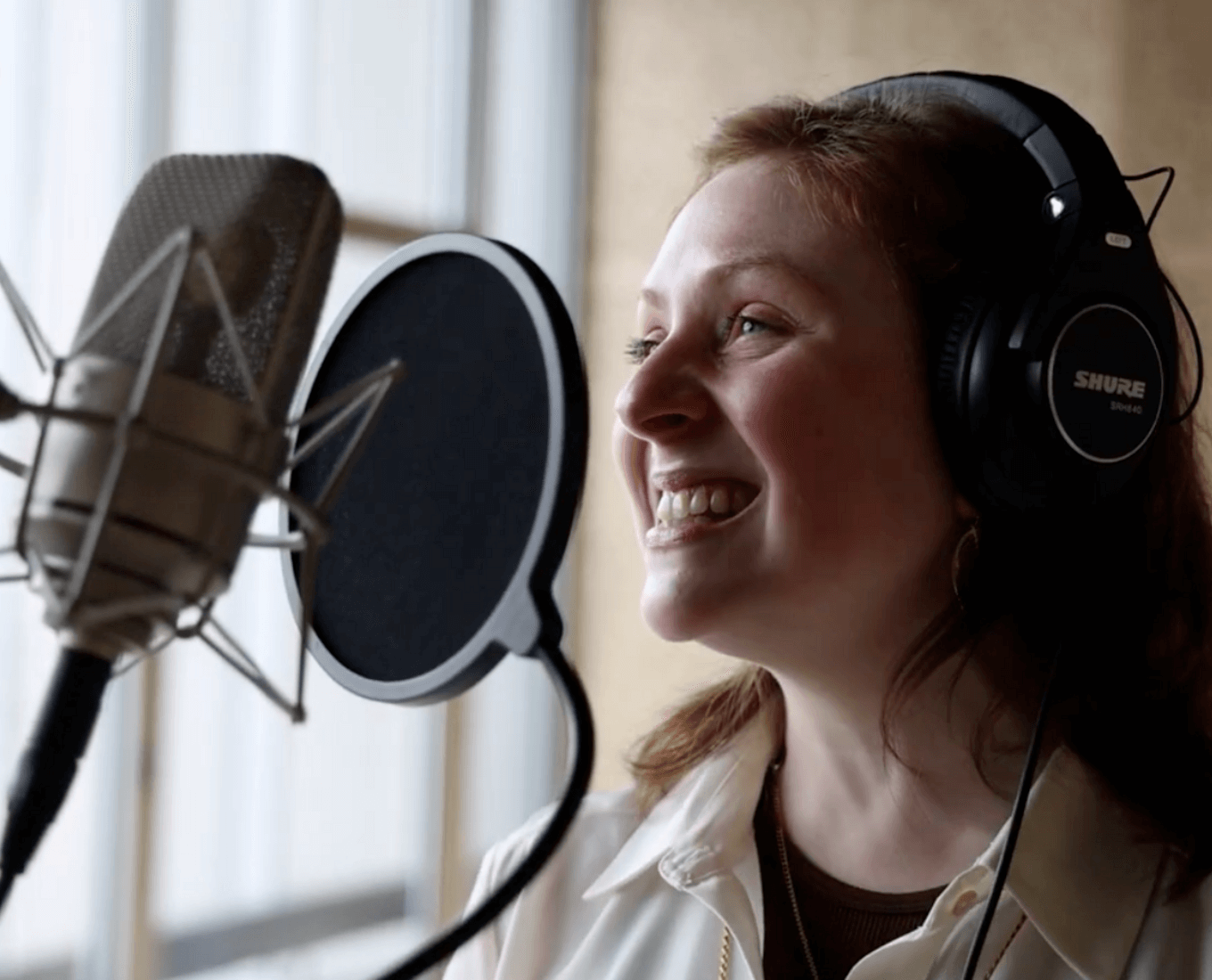Isabella Giaquinta ’23, one of two Fenwick Scholars for the 2022-2023 academic year at the College of the Holy Cross, will spend her senior year researching refugee mental health. Her project will live at the intersection of health studies and data science, pursuing research that could help healthcare providers screen patients more efficiently. During her research and development process, Giaquinta will work closely with the Immigrant and Refugee Health Center (IRHC) at Boston Medical Center, which provides a single point of care for refugees and asylum seekers in New England. Shannon Stock, Holy Cross associate professor of mathematics and computer science, Sally Bernardina Seraphin, assistant professor of neuroscience at Trinity College, and Sarah L. Kimball, M.D., assistant professor of general internal medicine at Boston University School of Medicine and IRHC co-director, will mentor Giaquinta.
In receiving the College’s highest academic honor, the Fenwick Scholar spends their senior year working closely with advisors and producing a final project that culminates in a presentation to the Holy Cross community in the spring.
How would you describe your research?
Although the number of refugees worldwide has substantially increased in recent years, their health care needs have received little attention. These individuals face social, economic and environmental traumas and disadvantages that can adversely affect their health and access to care. This project will employ machine learning to identify risk factors for poor mental health outcomes among recent refugees and asylum seekers in New England.
Why is it important to develop an algorithm to help identify refugees with the highest risk for poor mental health outcomes?
Although human migration is nothing new, there is insufficient evidence-based research on health outcomes associated with refugee status. The vulnerability of refugees is exacerbated by xenophobia, inadequate housing, unemployment, poverty, discrimination and inadequate access to health services. As past medical records are rarely available for these patients, identifying those who are at elevated risk is a major challenge for health care providers working at the IRHC. Machine learning algorithms that use information collected during a patient’s initial visit may help identify those with the highest risk for poor mental health. Screening for relevant risk factors would help prevent these patients from falling through the cracks of our healthcare system.
How did you become interested in using your mathematical and health skills/knowledge to improve care for those with severe mental illness?
I began college with the intent of pursuing a pre-medical track, dreaming of one day becoming a surgeon. Now, approaching my final year of undergraduate study, I am a mathematics and health studies double major with a minor in statistics — with no intentions of going to medical school. Although many factors contributed to this not-so-subtle switch, the Intro to Global Health course I took in the first semester of my freshman year played a vital role. Under the guidance of Tsitsi Masvawure, professor of practice in health studies in the Center for Interdisciplinary Studies, I learned that there is a lot more to health care than being a doctor, and that some of the most impactful work focuses on improving public health at the population level.
I never really liked math in high school. However, in my freshman year, something clicked. In the fall, I remember speaking with Gareth E. Roberts, professor of mathematics and computer science and department chairman, after Calc 2 one day. I walked into his office as a chemistry major on the pre-med track and walked out as a hopeful math major. In the spring, I decided to take one pure mathematics course and one statistics course. Next thing I knew, I was studying mathematics and statistics at the University of Oxford for the entirety of my junior year.
Although much of my undergraduate studies have focused on building a strong quantitative background, my interest in health and medicine never dissipated. With this, I am motivated to strategically combine my academic interests by pursuing a career where I can help address health inequities using a mathematical/statistical skill set.
What are you looking forward to most about this project?
I am thrilled to be spending my senior year focused on one in-depth research project. With the number of refugees dramatically increasing each year, research that captures the reality of the current refugee crisis is not only timely, but also pressing. Its relevance is underscored by the fact that we are currently experiencing the highest surge in global refugee numbers since World War II. Additionally, I am excited to begin volunteering for the Worcester Refugee Assistance Program, an independent nonprofit that assists refugees in Worcester. I believe this will provide me with meaningful and relevant community engagement during my final year at Holy Cross.
What do you want others to learn most from your project?
Health care delivery to refugee patients is a significant challenge, particularly in countries like the U.S. that lack a universal health care system. As a direct result, many refugees do not have access to the physical and mental health services they need. Additionally, they are often met with barriers when attempting to access appropriate resources. As a Jesuit institution, we are called to reduce the inequalities posed across the world, including those that leave individuals vulnerable. Displaced individuals make up a unique population whose lives depend on fulfilling this promise.
Isabella Giaquinta ’23 Researches Refugee Mental Health for Fenwick Scholar Project

Giaquinta will work with an organization focused on providing a single point of care for at-risk refugees.
Read Time
4 Minutes


